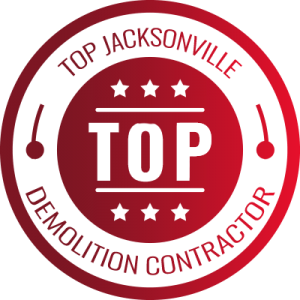



Large-scale building removal comes with plenty of moving parts, but one of the biggest concerns often goes unnoticed: the air quality around the job site. When a commercial building is taken down, there’s more at stake than just tearing down walls and hauling out debris. Particles released into the air can drift into surrounding neighborhoods, affect employees working nearby, or even spread into ventilation systems of adjacent properties.
Ignoring air quality can lead to long-term issues for the people working around the project and those living close by. It’s not just about comfort. It can present major health and safety risks. Businesses in Jacksonville that are scheduling full-scale demolition work need to stay ahead of these problems. Tackling air quality issues from the start helps keep the worksite safer and keeps your project within legal limits, too.
Understanding the Air Quality Challenges in Demolition
Every demolition project comes with mess, but some of that mess turns into tiny airborne particles you can’t even see. Dust is the most obvious concern, and it shows up fast as walls, flooring, ceilings, and roofing come down. But demolition often stirs up more than just building materials. Commercial structures, especially older ones across Jacksonville, may contain paint coatings, adhesives, or even materials that hold asbestos or lead.
Once disturbed, those pollutants can become airborne and settle far from the work area. Air currents from machinery or regular wind patterns can carry those particles down the street or into a neighboring business. For those managing or working in nearby buildings, this could mean breathing in harmful substances without even realizing it.
Common air hazards during commercial demolition include:
– Concrete and drywall dust
– Wood particles
– Mold from water-damaged materials
– Vehicle and equipment exhaust
– Silica from masonry materials
– Asbestos fibers from older building components
That list gets even more concerning when you know how easily those tiny contaminants can enter HVAC ducts or settle into workspaces still in use nearby. In a place like Jacksonville, where humid air can make airborne particles stick around longer, it’s never safe to assume they’ll just disappear.
Managing air quality isn’t just about reducing visible dust. It’s a bigger issue that ties into the health of workers, the safety of anyone living or working near the site, and how smoothly your project gets approved and completed.
Strategies for Managing Dust and Particulates
Planning ahead for dust control can go a long way in keeping a demolition job clean and safe. You can’t stop debris from being created, but you can control how far it spreads and what ends up hanging in the air.
Here are a few go-to strategies used by experienced crews:
1. Water application – Regular misting with hoses or fog cannons helps weigh down dust before it can take flight. This is one of the simplest and most effective methods used onsite.
2. Dust suppressants – These are chemical solutions sprayed on debris piles to help seal dust in place. They can be especially helpful when handling materials that will be left out for a while.
3. Wind barriers – Fencing or portable barriers placed around the perimeter help slow or block the travel of airborne particles.
4. Onsite cleanup protocols – Sweeping and vacuuming dust from walkways and machinery reduces the amount of material that might get kicked up again.
5. Equipment choices – Using newer machines with cleaner engines reduces emissions. Wet cutting tools or attachments with dust control features also help limit exposure during structural breakdowns.
Each site in Jacksonville may have different factors to account for, from humidity levels to proximity to other buildings. A strong dust control plan addresses those local conditions and adjusts as needed. Keeping machines in good shape, clearing out exposed materials quickly, and using barriers for containment help keep small issues from growing bigger.
The goal is always the same: limit the spread of debris that can linger in the lungs, in the air, and in nearby properties.
Ensuring Compliance with Air Quality Regulations
Staying within legal air quality limits during demolition isn’t optional. Failing to follow the proper rules can result in violations and costly delays. In Jacksonville, commercial demolition crews have to manage both local codes and federal guidelines to move ahead without running into compliance issues. Planning for these rules from the beginning saves time, money, and unnecessary stress.
Federal regulations under the EPA set the groundwork for what’s allowed when it comes to emissions, debris disposal, and material handling. Then there are state and local rules that can get even more specific. For example, working near schools or public facilities often comes with tougher air quality expectations. That’s why understanding the limits for dust, emissions, and particulate control is a key part of any smart demolition strategy.
Contractors who’ve dealt with large-scale removals across Jacksonville know how to manage this part of the process. They’re prepared to set up the proper containment plans, follow approved methods for handling hazardous materials, and keep full documentation of how these tasks are done. This helps avoid shutdowns or repeat assessments, which can stall your timeline and impact nearby properties.
A good demolition partner should be able to do the following:
– Identify air quality rules based on your project’s location in Jacksonville
– Secure any necessary permits or approvals before starting work
– Document all dust and debris control measures
– Coordinate with local environmental or city inspectors when required
Compliance isn’t just about checking boxes. It plays a big role in keeping demolition safe for nearby workers, local businesses, and the public. Being proactive with this step helps your job move forward smoothly and keeps your project on the right side of the law.
Best Practices for Air Quality Monitoring
The best way to know if a demolition job is affecting air quality is to track it directly. Monitoring gives you a clear picture of what’s happening on-site and how well the control measures are holding up. For commercial projects in Jacksonville, especially those close to public areas or other businesses, this kind of tracking can make or break a smooth operation.
There are several tools available to get the job done right. Some use handheld monitors for spot checks, while others install fixed stations that give constant readings around the perimeter. These monitors look out for things like dust density, airborne particles, and even unusual gases or odors depending on the location of the building being removed.
Real-time data helps decision-makers make quick calls when conditions shift. For example, say you’ve got a strong breeze blowing dust toward a daycare next door. With monitoring alerts, crews can pause, adjust spray coverage, or bring in more barriers before complaints or violations start coming in.
Along with tech tools, there are a few best practices worth sticking to:
– Place sensors where wind direction could carry dust offsite
– Check readings at regular intervals, not just at the start and end of shifts
– Train workers to understand what triggers to look out for
– Keep clear logs that can be shared with inspectors or nearby businesses if needed
Constant monitoring acts like the eyes and ears of the demolition process. It gives everyone a chance to respond before small issues grow into bigger ones. Plus, it shows the community and anyone affected by the project that air quality is being taken seriously.
Keeping Jacksonville’s Air Clean During Demolition
Demolition isn’t just about what gets knocked down. It’s about how the work affects everything and everyone around it. In Jacksonville, where hot summers and close-knit business districts are the norm, paying attention to air quality can’t be brushed aside. It plays a part in health, safety, and how smoothly projects stay on schedule.
From managing dust to knowing the rules and keeping tabs on air quality day by day, every detail matters. These steps not only avoid headaches down the road, they also build trust among workers, property managers, and nearby neighbors.
When commercial buildings are removed with the right care and process, priorities stay balanced. Safety holds steady, regulations are met, and the environment surrounding the worksite stays protected. Jacksonville deserves that level of care with every demolition project.
To ensure that your commercial demolition project in Jacksonville runs smoothly and meets all safety and compliance standards, partnering with the right experts is key. Elev8 Demolition is here to assist you with managing air quality and maintaining a safe environment throughout the process. If you’re looking for a trusted demolition contractor for your next project, reach out to us today.

